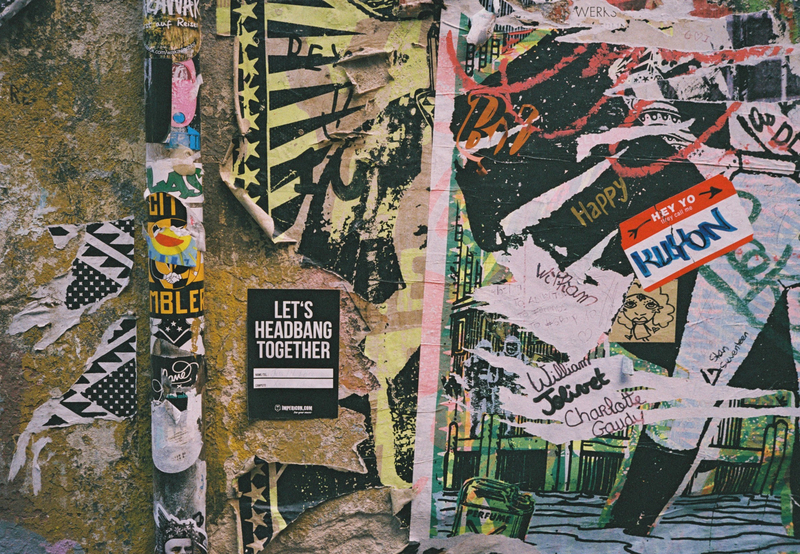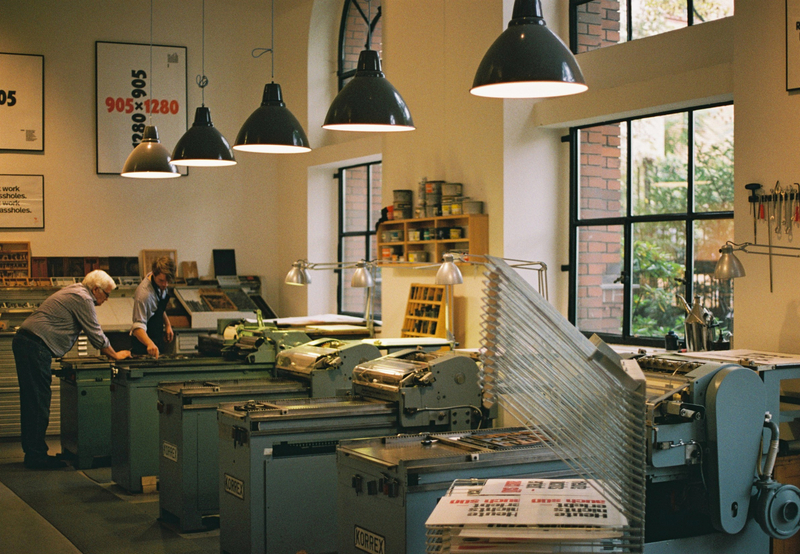Sep 27, 2020 0
Looking back on 2019
I have to say that 2019 was not my best year. Actually looking back on the last years it was a significant low. This is mostly because I got caught up in a lot of stuff and in the end wasn’t in line with the way I would actually like to have my life. Kind of like during my M.Sc.. This always happens so gradually and I get caught up more and more and then at some point I have an epiphany and see how far I actually deviated from where I want to be. This is always really shitty and it’s always really sad because I’m totally aware of what I actually need to be happy in life: a healthy social environment with friends I enjoy being around, laughing a lot, working on creative projects which I am proud of, be challenged, but not over-challenged, not working way too much, being outside in nature, enjoying the summer, traveling, living a life in line with my ethical and moral compass, being honest.
For a longer stretch during summer I was working way too much and only doing some sports on the side. Nothing else. Looking back this had quite an impact on me now. I feel that I missed a large part of the summer and I remember many days sitting inside in front of the laptop, looking out at the beautiful weather with weeks and months just flying by. I don’t want this to be my life. I don’t want it to be like this for the next twenty years. Ideally I would like to spent most of my time outside during the summer. To me that’s so fulfilling, lying outside in nature in the warm sun, seeing how beautiful nature evolves during spring and summer. Sitting in front of a laptop all day makes me feel like I miss out on the most important aspects of life. I also didn’t take much holiday in 2019, only one prolonged weekend and a couple of single days.
Good decisions
Sports. I’ve never done any sports in my life, sometimes I tried something for a couple weeks, but then dropped it again. When I was still working at mbr, Ludwig one day told me that if you have a developer job there will come a tipping point sooner or later and you’ll need to start some sport. For me this was at the beginning of this year, when I felt my body complaining and not shutting up anymore. So Valerie got me to do a daily yoga routine after breakfast (which we kept doing for a great part of this year). Additionally I started going to the gym every 1-2 days. And I started bouldering, did a couple of courses as well. Actually we found out that there is a really nice boulder place not even ten minutes from our flat. That’s typical for Berlin, there is so much stuff, that even after living in a place for three years you still discover new things. Yeah so the bouldering is really nice; non-competitive, collaborative, creative, problem solving — and you can decide by yourself which difficulty you want to tackle. This kind of sport really suits me.
Sun. Going outside into the sun for at least 30 minutes a day. This was something I started after reading “Head Strong” by Dave Asprey.
Life Podcast. Valerie and me recorded a 2-3 hours podcast about our life, our view of the world, what makes up our mind at the moment, where we want to go, etc.. The plan is to do this every year and have kind of a life snapshot, which is probably interesting to listen to in 15 years or so. We don’t plan on publishing it, just mostly for ourselves.
Writing. I started getting back into creative writing. I now regularly go to a writers meetup (it turned out that two colleagues of mine go there since a year or so). And I found a writers group with a bit of luck. Just at the time when I was looking for one, Deborah had put up a singular meetup for creating this sci-fi writers group. After that meeting we kept the group closed and meet up once a month now, reviewing each others stories.
Best Photos I took
Food
I’m on the vegetarian-vegan spectrum since 2.5 years now and convinced that I will never go back. I try to adhere to a mostly vegan diet. Looking back on myself ten years ago it seems crazy what opinions I had at that time regarding a vegan diet. My younger (steak-loving) self would be shocked by my views now. It’s crazy, I think if I would discuss the topic with my younger self now the discussion would be a waste of time.
I meet so many crazy-smart, intelligent, world class developers here in Berlin. A thing that really strikes me is how often they work on empowering people, working towards a fairer society, supposedly making the world a better place. And then they eat meat two times a day, seven days a week. It seems so contrarian and I can’t get it into my head how people can possibly be so blind.
Best Podcast
Joe Rogan — John Carmack
Quotes which stuck
“We all have our time machines. Those that take us back are memories. Those that carry us forward are dreams.”
–H.G. Wells, The Time Machine
“People want to get rid of the forest to make agricultural land, for people to eat meat.” from this The Verge article on the fires in Brazil which dominated media for a long time this year. It’s sad that there was so much debate about climate change this year, but the thing which you can control every single day doesn’t find that much of a mention. There are some surveys online where they asked demonstrators about the things every single one of us can do. A vegetarian/vegan diet is mentioned very seldomly, mostly after all the other points and only when people are pointed to it. If you look at the numbers it makes up place one or two (depending on the statistic) of the factors you can change though (together with traveling).
“Look around you, all of that was cash at some point”
Don’t remember where I heard this, but I think about it often when I look around in our flat.
“All transactions will be settled digitally in twenty years.”
In a discussion around blockchains. I wholeheartedly agree, it seems obvious to me.
Seneca in Latin: “What matters most is whether one is extending one’s life or merely delaying one’s death”.
Mike Tyson was on Joe Rogan, he said that he doesn’t even work out anymore because it reactivates his ego, brings his competitive side back, and he starts turning back into his old, nasty, egomaniac self.
Sport
Started going to the gym in April, it went really well. Still going about three times each week. Started with machines, but after a while recognized that barbells make much more sense. This is because with machines you’re always forced into the movement radius of the machine, there is no margin for your body’s own physique. Also you only ever train isolated muscle groups, whereas with a barbell you typically do compound exercises, activating many muscle groups at the same time. This saves time and is generally thought to be a good thing for your physique and coordination.
I was surprised when I first started switching my workout from machines to the barbell thing and looked more into it. Turns out you don’t need all these fancy machines, but can instead achieve better results with way less equipment (a barbell is basically sufficient if you’re not aiming for cardio). If you want more info the 5×5 workout is a recommend reading. It’s an alternating set of five simple exercises and they are quite old and proven: squats, dead lifts, barbell rowing, bench press, etc..
Best Article
How One Man Made the Indie Video Game Sensation Stardew Valley on Eric Barone.
Best Science
I like the Ctrl-labs idea of building an “API for the brain”. This talk summarizes the idea well.
Dystopian Things which happened in 2019
There were two things which stood out. First, it sees that somebody trained an AI using publicly available recordings of speeches of a CEO. The AI was supposedly able to fake the voice and scammers used this to get people in the company to conduct some “urgent transfers”. (source, more source). There is some controversy though, some people argue that it could also have been a well trained voice actor.
The second dystopian thing that stood out this year was how Boris Johnson manipulated Google search results by intentionally including strange keywords in public speeches. Another thing he did was to give weird interviews on how he picked up this new hobby of building miniature buses from old furniture, which started outranking all the media articles on the incorrect statements he had printed on buses in the UK, as part of his campaign. (source, source, the interview, hackernews discussion).
Funniest thing all year
A colleague of mine moved to Germany (from Silicon Valley) and he had many funny experiences adapting to the culture. One instance was that the first letter he received, in his first week, before anything else, before any official government documents, before any company stuff, was a letter from the GEZ, asking him to pay 17.95 euro for his (of course non-existent) radio and television :D. The GEZ is a German institution created after the 2nd world war, all public media (and much more) is funded through them. This institution is completely decoupled from the government, instead people pay directly for it, as to not again give politicians the power of controlling the financing of e.g. public news reporting. They have a reputation for being really diligent on finding people who haven’t paid their fees yet. Their letters are infamous and it’s a bit of a running gag among Germans.
Another, maybe not so funny, bit was that in his first week in Germany he went to a store to pick up all kinds of supplies, filling his baskets full. The cashier pulled all goods over the counter and asked him for the money. He paid and was then wondering why nobody had yet put the goods into bags. He didn’t bring any bags and had just assumed somebody would wrap them (in, of course, disposable plastic bags).
Best videos
The interviews done by Graham Bensinger are really good, for example this one with Niki Lauda.
This short documentary clip is on a badger named Stoffle who is a real escape artist. No matter what cage they put him in he always managed to find a tricky way of getting out (sometimes even coordinating with his wife). It’s incredible to see the clever escape strategies the animals come up with.
Best series
The YouTube series Wayne.
Best Vlog
I sometimes fall into this vlog hole when I discover something interesting. Earlier this year I discovered that there are some Americans living in Germany vlogging about how they perceive the country. It’s interesting to see the country through their eyes, how they perceive German traditions like Maibaum, Fathers Day, or things like Milchtankstellen (milk gas stations).
How Americans see Germany
There is this whole scene of Airsoft battlefields. Basically those are huge old military bases (or even islands) where groups play Deathmatch against each other. Basically real life Counter Strike with Airsoft guns. These guns are extremely elaborate, they basically resemble real guns, just that they don’t kill you. And the “maps” are crazy…there are some videos of Deathmatches of a couple hundred or even thousands of people, kinda like a festival. Silo is one YouTuber who specialized in being an airsoft sniper, I quite like his channel.
Best Buy
The Roost Laptop stand + an external Thinkpad keyboard. This was because of ergonomics while sitting in front of a computer, it’s much healthier this way. See e.g. this video on how to have an ergonomic computer desk set-up.
Also the Hobonichi planner.
Some Outlier clothing stuff. Their pants are amazing.
SDR traveller. Minimalistic bags and stuff made from black Dyneema (a highly technical material with great characteristics).
Veilance Nomin. The most expensive backpack I ever bought. Also the best one.
Gazelle Van Staed. A new bicycle.
Best Workshop
I finally did the letterpress workshop by p98a and it was really nice. Erik Spiekermann himself was there and participating. I really like analog print. It has character. No matter how thoroughly you cover the letters with color, you still see the texture of the wooden type, which in some cases is something like a hundred years old and has printed so many posters before.
Best music
The album “Runway Markings” by Okta Logue. I was on their concert in Berlin and it was my concert-highlight of the year. I’m always shocked that they are not way more famous.
Best talk
I attended the Web3 Summit this year and it was great. My favorite talk was the fireside chat with Gavin Wood (my boss).
Food
I discovered Huel this year, it’s a a nutritionally complete powdered food. The powder is created from finely grounded oats, linseeds, etc. and contains everything which your body needs (at least to the state of what science knows currently).
I was always extremely skeptical of Soylent (a similar product), but my opinion changed this year, mostly because of the way Huel marketed it’s product. So for me it’s not about stopping cooking or properly eating altogether (in fact I love to cook). It’s about these occasions where you just don’t have time (or motivation) to eat some proper food and would usually eat something unhealthy, get a pizza or some junk food. Then it’s a way better idea to consume a nutritionally rational shake.
Things which stuck
At my current company we have a Head of security, whose job (among others) is to make sure everybody is on the same page regarding security practices. As part of this he does an afternoon-long on-boarding session with every new team member. One thing which stuck with me was that I hadn’t previously realized how big of an attack vector it is to have the mobile phone number of a person. This is because it’s easy to get a SIM card for an arbitrary phone number. Many services have a fallback feature where if you get locked out of an account they use your mobile phone number to send you a new password — which is a big attack vector. So it made me think twice about leaving my number with people/services.
Presentation Ideas
There was a talk at W3S by Rob Habermeier which he structed corresponding to acts in a theatre play: The Motive, etc..
New year resolutions I had set for 2019
- Every evening make a plan for the next day. ✗
Did this for the first months, it was really effective. But then I got lost because I was stuck on some work stuff and the plan just never seemed to work out. - Do Yoga every day. Consider “the gym”. ✓
This worked really well. For the first time in my life I did more sports than ever before. And even regularly. - Get really good in Rust. ~
I definitely made progress, just by working a lot with the language. But I have some world class colleagues who contribute stuff to the Rust compiler or are in Rust working groups, discussing changes to the language which fix shortcomings. Those people are my definition of “really good” and I’m not there yet. - Save more money. ✗
- Buy max. 5 clothing items ✗
- Habit Tracker ✗ The idea is to visualize how well you achieve the goals which you have set for yourself and encourage you to keep it up. I decided on these: Zero Inbox, Satisfied with Achievements today, Did something from To Do List, Yoga, Vegan. I kept this up for a couple of months, but it somehow got lost at some point.
New years resolutions for 2020
With the poor track record of 2019 you might ask: why still do it? I think it’s still a good idea to record where I want to go and what I want to improve. Also 2019 was particularly bad, for other years I kept the resolutions way better.
So for 2020 I got these ambitious goals:
- Two social meetups per week
- 3x gym per week, do Yoga regularly, meditate regularly
- Travel more, take use of my digital nomad freedom. Our office is really nice, but I’m free to work from wherever I want. So for one week in 2019 I was working from Madrid, where I was visiting Thomas. I want to do this again and more things like it.
- Consider installing Telegram. I feel like I’m missing out socially. On the other hand I have such bad memories from the time when I was still using messengers and was constantly interrupted by stuff and felt like I had an obligation to reply. It felt like people could just pop into my life at any point if they wanted to, giving me an obligation to somehow react.
In general it would be nice to get back to a “happy and satisfied with life” place again. If I let my mind go wild the thing that I would currently like to do most is to buy a barn with some friends in a rural place, create a vegetable garden, grow our own food, and work remotely for half of the day. At the moment that’s the best vision I can come up with. I have the feeling that this would be a fulfilling lifestyle to me. But this will have to wait for a couple years.











